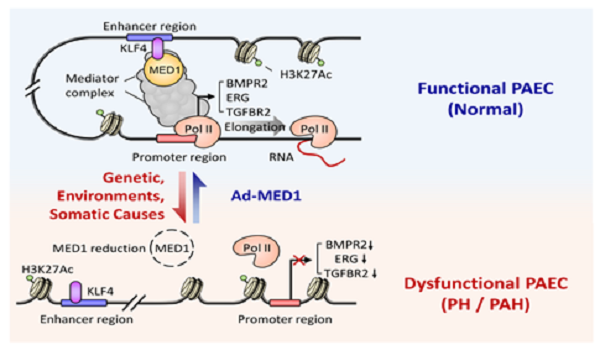XJTU reveals new pathogenesis of pulmonary hypertension
Exploring the pathogenesis of pulmonary hypertension and relieving the disease progression is the kind of research the First Affiliated Hospital of Xi'an Jiaotong University (XJTU) has been doing.
A team led by Professor Yuan Zuyi has published a paper titled MED1 Regulates BMP/TGF-β in Endothelium: Implication for Pulmonary Hypertension in Circulation Research, the top journal in cardiovascular basic research.

The team found that homeostatic regulation of BMPR2 (bone morphogenetic protein receptor type II), and TGFBR2 (transforming growth factor beta receptor 2) by MED1 (mediator complex subunit 1) synergistic with KLF4 (Krüppel-like factor 4) is essential for the normal functioning of the pulmonary endothelium. Dysregulation of MED1 and the resulting impairment of the BMP/TGF-β signaling is implicated in the disease progression of pulmonary arterial hypertension (PAH) in humans and pulmonary hypertension (PH) in rodent models.
Dysregulated BMP or TGF-β signaling pathways are imperative in idiopathic and familial PAH as well as experimental PH in rodent models. MED1 is a key transcriptional co-activator and KLF4 is a master transcription factor in endothelium.
PH is a fatal cardiovascular disease characterized by a progressive increase in pulmonary vascular resistance and pulmonary vascular remodeling, eventually leading to right heart failure. How to stop the progression of PH patients and improve their prognosis has been a challenge in this field.

